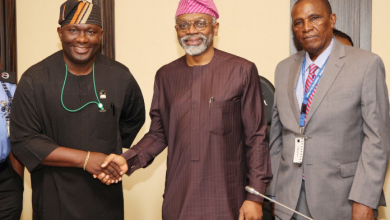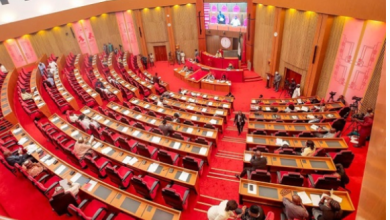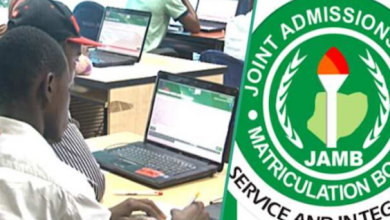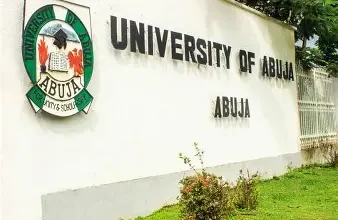Ecobank, YABATECH, others unveil Lagos Pop-Up Museum
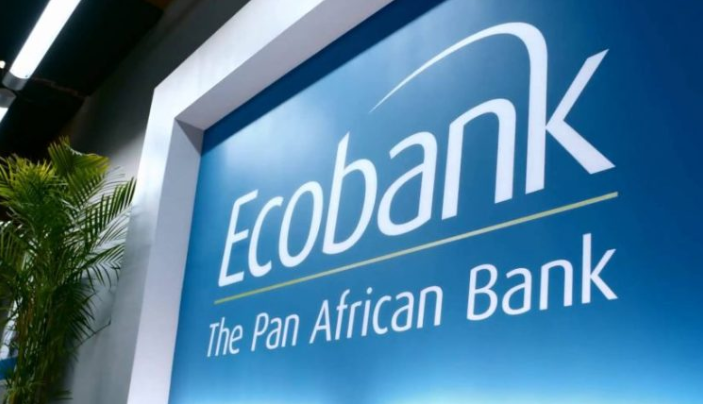
Ecobank Nigeria, in collaboration with Yaba College of Technology (YABATECH) and key cultural partners on Tuesday in Lagos unveiled the Lagos Pop-Up Museum.
The museum is a creative platform designed to showcase African art as a catalyst for education, innovation, and youth empowerment.
The initiative is jointly organised by Ecobank Nigeria, the Yaba Art Museum of YABATECH, the Centre for Black and African Arts and Civilisation (CBAAC), and the National Commission for Museums and Monuments (NCMM).
It aims to demonstrate how creativity can serve as a tool for social transformation while giving young artists visibility, mentorship and access to economic opportunities.
The Managing Director of Ecobank Nigeria, Mr Bolaji Lawal, represented by Mrs Omoboye Odu, Head of SMEs, Ecobank Nigeria, said the museum project bridges the gap between art and economic development.
According to him the bank’s involvement reflects its belief that creativity is not only an expression of identity but also a pathway to innovation and financial inclusion.
“Art is not just decoration; it’s a driver of innovation and community growth. Through this collaboration, we are empowering young Africans to see creativity as a sustainable livelihood,” Lawal said.
The Lagos Pop-Up Museum, located at the Ecobank Pan-African Centre (EPAC) in Victoria Island, opened on Nov. 8 and will run until Feb. 10, 2026.
It features exhibitions, workshops, performances and mentorship sessions connecting students, curators, collectors, and the public.
The Rector of YABATECH, Dr Adedotun Abdul, described the initiative as a living classroom that demonstrates how education and creativity can intersect to solve social problems.
“Through art adoption and public collaboration, we are funding students’ education and promoting cultural literacy. It’s creativity with a purpose,” he said.
Abdul, represented by Coordinator, Yaba Art Museum, Dr Baskin Odo, said that the museum embodies the college’s vision of linking academia, culture and the creative economy.
He noted that the project bridges research, heritage and real-world impact while helping young Nigerian artists gain global exposure.
Among the highlights is an “Adopt an Artwork” campaign, where visitors can sponsor students’ education through artwork adoption, with proceeds supporting underprivileged students.
Other installations explore themes such as “Homecoming,” “Deep Blue,” and “Mutating Space,” focusing on identity, environmental consciousness, and innovation.
Mr Olugbile Holloway, Director-General of the National Commission for Museums and Monuments (NCMM), commended the initiative as a forward-thinking effort that fuses heritage preservation with modern technology and education.
Holloway, represented by Mr Attinsir Roberts, an Assistant Director at NCMM, said that museums should evolve into dynamic centres for innovation and lifelong learning.
He explained, “Museums today must go beyond storing artefacts; they should serve as living classrooms and innovation hubs. “This collaboration shows how culture can be repositioned as a tool for sustainable development.”
Holloway added that the NCMM would continue to provide technical expertise and artefacts to enrich similar exhibitions across Nigeria, with plans to digitise collections for global access.
“We want young Nigerians to experience their heritage both physically and virtually. When culture is visible and accessible, national identity grows stronger,” the director-general added.
An Assistant Director at CBAAC, Mrs Roselyne Adahaka, said the collaboration reinforces the centre’s long-standing mission of preserving African heritage and reviving the ideals of FESTAC ’77, which celebrated unity and diversity across the continent.
“We are proud to partner in an initiative that revives the FESTAC spirit by connecting younger generations to the richness of African expression.
“Our arts and culture must be positioned as part of the solution to social and economic challenges, not mere nostalgia,”the assistant director noted.
Adahaka added that CBAAC would continue to support community-based art programmes that encourage entrepreneurship, cultural tourism, and youth leadership.
She stressed that with stronger collaboration among government, academia, and the private sector, the creative industry could become a major contributor to nation’s GDP.
“Culture-based economies are growing worldwide. Nigeria must not be left behind. We will keep championing creative partnerships that make art accessible and profitable,” she said.
The project aligns with Ecobank’s Corporate Social Responsibility (CSR) pillars of education, sustainability, innovation and African identity.
It offers a model for how culture-driven initiatives can create jobs, nurture talent, and build economic resilience across Africa.
NAN
